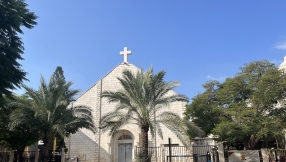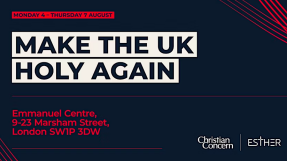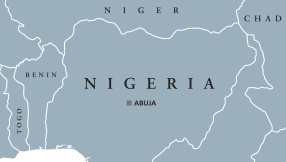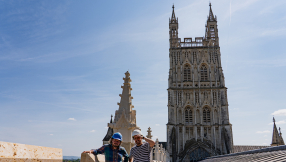Tutu Slams South Africa's Efforts to Fight HIV/AIDS
Recalling fallen anti-apartheid heroes, the Nobel peace laureate said they would be shocked by the devastation caused by the HIV/AIDS pandemic, which he said was killing 900 people every day in the country.
"They would be glad that a more realistic plan was in place but they would lament the fact that too many died unnecessarily because of bizarre theories held on high."
South Africa has one of the world's biggest HIV caseloads, with about one in nine people infected with the virus, and President Thabo Mbeki's government has come under fire from activists for failing to halt its spread.
The country was late and appeared reluctant in its efforts to roll out life-saving anti-retroviral drugs to fight the deadly disease -- the mainstream approach to the epidemic.
Mbeki has been criticised for clouding the anti-HIV/AIDS fight by arguing that AIDS is the result of poverty, chronic disease, malnutrition and other environmental factors, a stance seen to have delayed widespread drug use.
Tutu also criticised the goings-on in the health department, where Mbeki sacked the deputy health minister Nozizwe Madlala-Routledge for insubordination, sparking a public outcry and strengthening fears over his commitment to fighting AIDS.
Madlala-Routledge, a rising star in the South African Communist Party, had publicly criticised the health minister, a close Mbeki ally, who had angered activists by suggesting fighting AIDS with garlic and beetroot rather than drugs.
Speaking at the Nelson Mandela University in the Eastern Cape province, where he was presented with an honorary degree, Tutu said former anti-apartheid activists would be shocked at the extent of crime in modern South Africa.
"Why was there so much corruption? Undoubtedly they would be shocked that so many still lived in shacks. They would be shocked that the gap between rich and poor was growing," he added.
Africa's biggest economy has grown steadily over the past few years, and has seen the emergence of a strong black middle class, but the lion's share of the economy is still in white hands and the majority of blacks languish in poverty.
On the brighter side, Tutu said the activists would be thrilled to know that their sacrifices were not in vain.
"They would laugh and be glad that apartheid had been defeated, that democracy reigned supreme... no more humiliating signs "Natives and dogs not allowed"," he said.
"They would be so proud that their President (Mbeki) was playing such a prominent role in Africa and elsewhere, especially with peace initiatives," he added.













